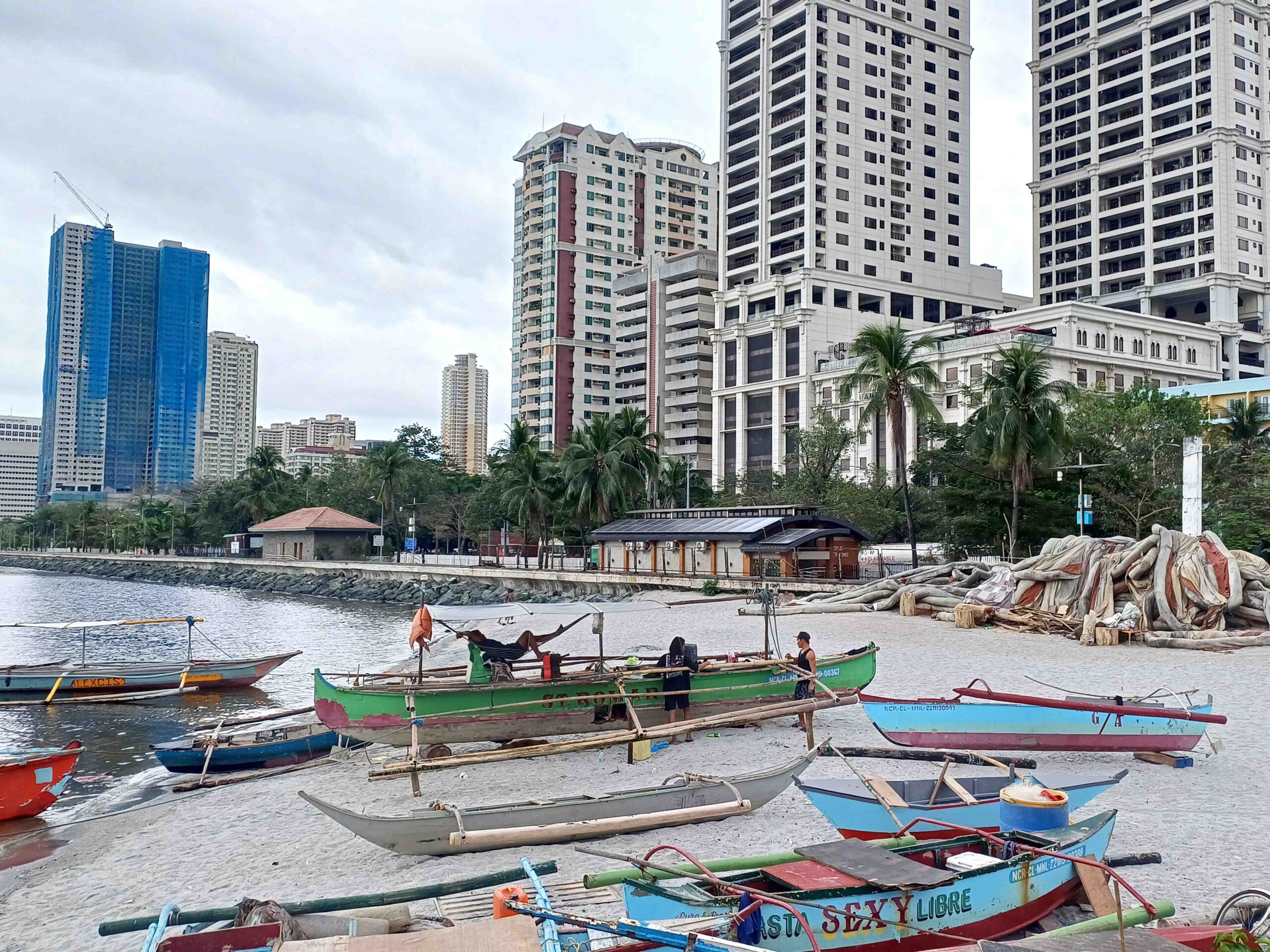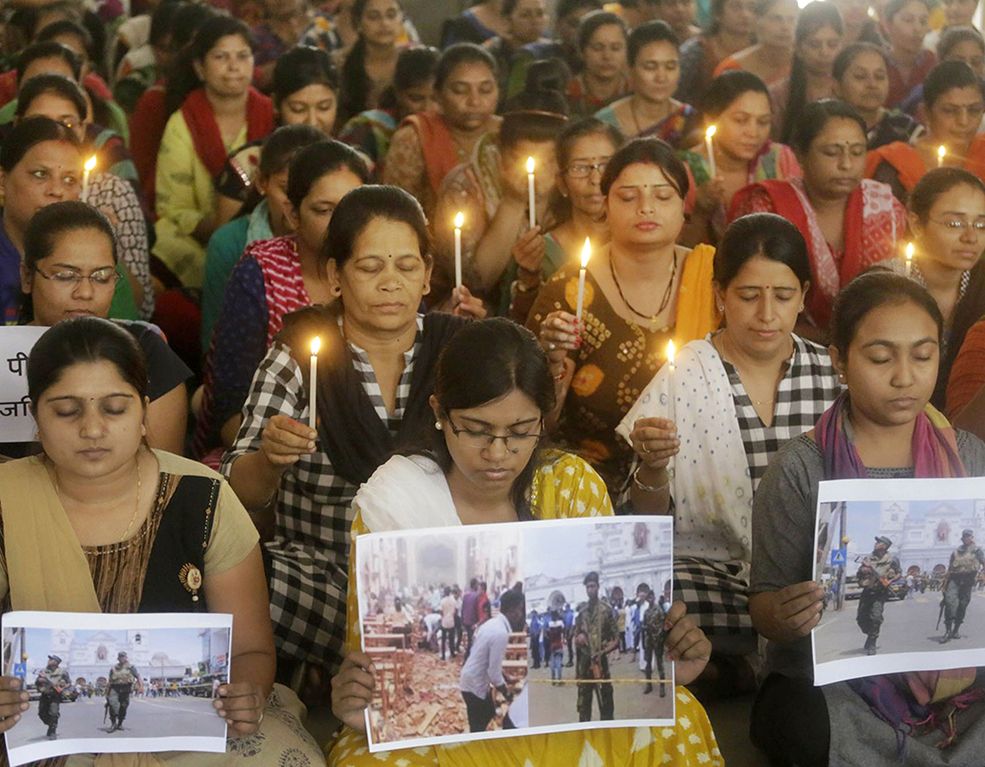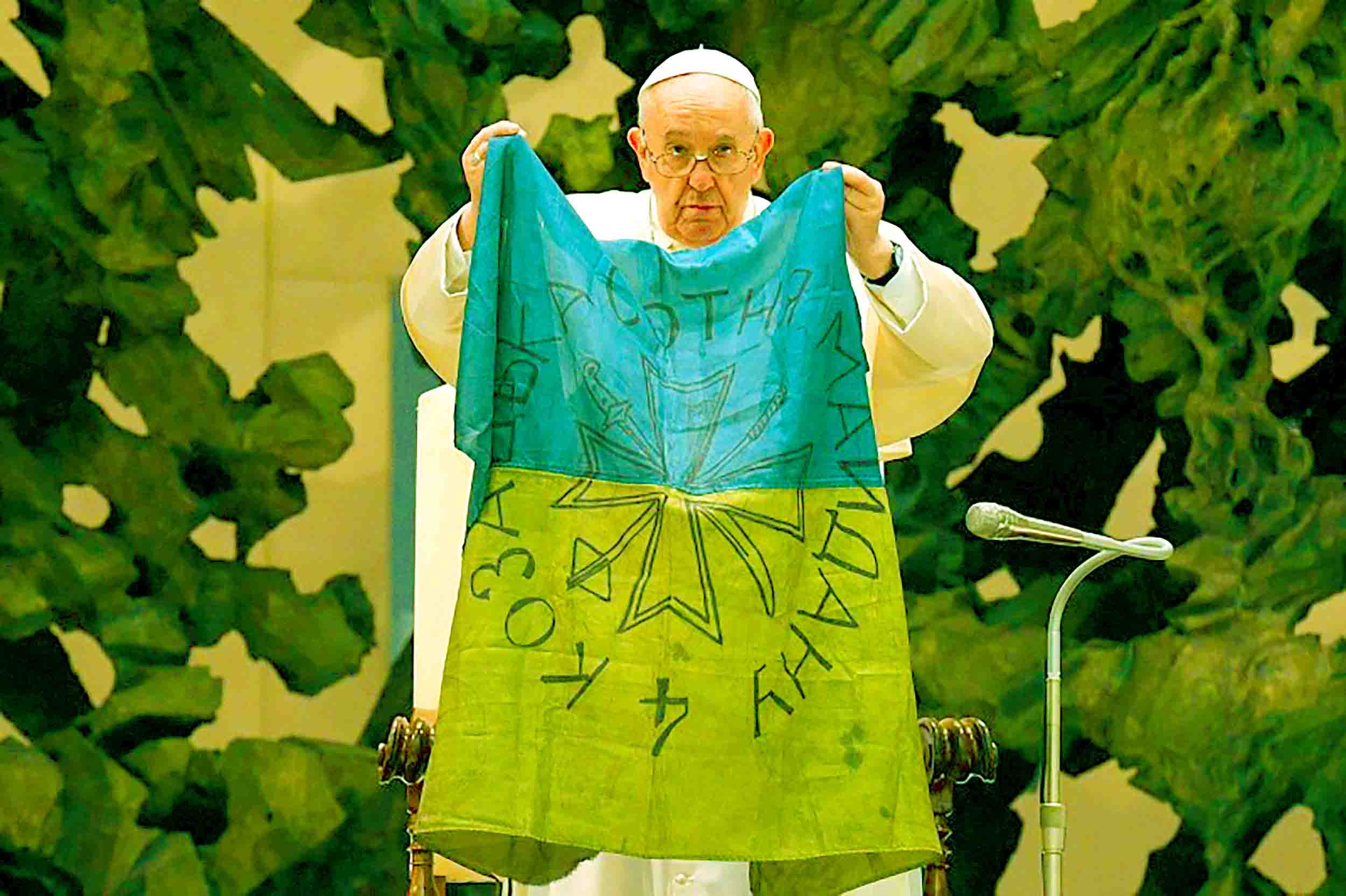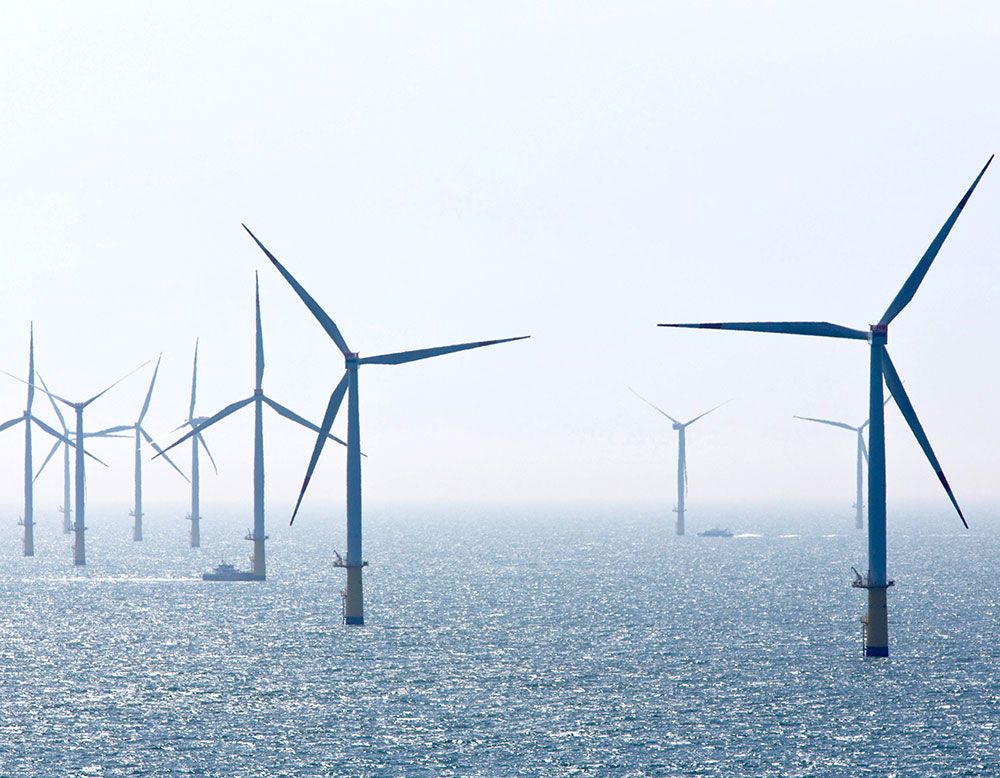The ICM Sisters denounced the repeated harassment of Philippine government boats and Filipino fishermen by Chinese vessels in the contested waters. In a recent statement, the ICM Sisters urged the Chinese government to respect the international court’s decision.
“We call on Beijing to honor the 2016 ruling of the Permanent Arbitration Court (PAC) that the West Philippine Sea historically and rightfully belongs to the Filipino people,” said Sr. Maria Christiane A. Oyales, a member of ICM Communities in Mission.
The ICM Sisters have slammed China’s sweeping claim over the West Philippine Sea. “We reject the unilateral claim of Beijing in enforcing its nine-dash line over this body of waters as it is incredible and has no basis in terms of history and international law,” Oyales said.
The ICM Sisters have also expressed support of other countries protesting Chinese excessive claims over the contested waters. “We are in solidarity with other Southeast Asian nations in condemning the intrusion and might employed by China over the poor fishermen who are harassed, bullied, and prevented by the elements of the Chinese Coast Guards over the economic zones belonging to these sovereigns,” Oyales added.
Beijing’s nine-dash line overlaps with the exclusive economic zones of the Philippines, Brunei, Indonesia, Malaysia, Taiwan, and Vietnam. In 2016, the international arbitration court ruled in favor of the Philippines in China’s claim over the contested waters.
According to the PAC, China’s claims based on the nine-dash line “have no legal basis.” It also stated that the “tribunal found that it could–without delimiting a boundary–declare that certain sea areas are within the exclusive economic zone of the Philippines, because those areas are not overlapped by any possible entitlement of China.”
The nine-dash maritime claim of China covers 90 percent of the contested waters. But China does not recognize the 2016 international arbitration court ruling.
Reacting to the Department of Foreign Affairs statement commemorating in 2024 the Philippine victory against China over the contested water, the Chinese embassy in Manila’s spokesperson re-echoed Beijing’s rejection of the ruling.
“The arbitral tribunal in the South China Sea Arbitration exercised its jurisdiction ultra vires and made an illegitimate ruling,” the Chinese embassy spokesperson said. “China does not accept or recognize it, and will never accept any claim thereon.”
In 2019, a Chinese vessel rammed and sank a Filipino fishing boat in the West Philippine Sea. The Chinese vessel abandoned the 22 Filipino crew. Vietnamese fishermen rescued the crew.
The harassment of Philippine boats and fishermen by Chinese vessels continues. The statement was issued by the ICM Sisters days following reports that a Russian attack submarine was spotted by the Armed Forces of the Philippines 80 nautical miles west of Occidental Mindoro on Nov. 28.
Russia is a longtime ally of China. Philippine President Ferdinand Marcos, Jr. described the presence of the Russian Kilo II-class electric submarine as “worrisome.” The statement was also issued after a Chinese vessel hit a ship belonging to the Bureau of Fisheries and Aquatic Resources of the Philippines with a “high-intensity laser” in the West Philippine Sea early in December 2024.
PEACEFUL MEANS
In a press briefing in Manila on July 2, 2024, Vatican’s foreign minister Archbishop Paul Richard Gallagher called on the parties involved in the West Philippine Sea row to “abide by international law” and resolve differences through peaceful means.
“In such circumstances, such situations of conflict, whatever they are, first of all, that every effort must be made that any differences, conflicts are resolved peacefully,” the papal envoy said.
In December 2024, Beijing, which claims nearly the entire South China Sea in spite of international law, condemned the Philippines’ plan to acquire a Thyphoon missile system from the US as “provocative and dangerous move.” Chinese Ministry of Foreign Affairs spokesperson Mao Ning said, “It is an extremely irresponsible choice for the history of its own people and the people of Southeast Asia, as well as for regional security.”
The region needed “peace and prosperity, not missiles and confrontation”, she added. Chinese Defense Minister Dong Jun also said in June 2024 that the deployment of the Typhon missile system was “severely damaging regional security and stability.”
The missile system is capable of sending missiles as far away as China and Russia. Filipinos were angered by the Chinese officials’ criticisms, saying Beijing was continuously positioning its illegal sweeping claims in the contested waters and did not have the right to prevent the Philippines from securing its sovereignty.
SELF-DEFENSE
In media reports, Lt. General Roy Galido, Commanding General of the Philippine Army, said the Philippines would acquire the mid-range missile system, which is already deployed in the country for annual joint military exercises, to protect its sovereignty and interests.
Galido dismissed the Chinese officials’ criticisms. He said the Philippines “should not be bothered by others’ seeming insecurities because we don’t have any plans to go outside our country’s interests”.
Jose Mario De Vega, Associate Professor at National University-Manila, cautioned Beijing to stop underestimating Filipinos, noting that Filipinos “are the first country in Asia to overthrow a foreign power and declare a republic.”
He noted that Filipinos stood up and fought the Japanese Imperial Army during World War II from day one until the end. “We fought a dictator for more than two decades and had two revolutions,” De Vega said. “In fact, when your people tried to copy our 1986 revolution in 1988 at Tiananmen Square, your government cracked down on people and students who led the same.”
De Vega, a former student activist, also reminded Beijing of Filipinos’ history of courage and greatness. Early in January 2025, a huge Chinese Coast Guard vessel patrolled the disputed Scarborough Shoal. The ship continued to the northwestern coast, reaching a distance of 77 nautical miles (143 kilometers) from the shore.
The presence of the huge Chinese vessel 77 nautical miles from the shore “is unacceptable and, therefore, it should be withdrawn immediately by the Chinese government,” Jonathan Malaya, assistant director-general of the National Security Council, told reporters at a news conference.
Known as “the monster”, the Chinese ship measures 156 meters in length and is considered as the world’s largest coast guard ship. A Philippine patrol ship warned the Chinese vessel: “CCG 5901. This is BRP Cabra, MMRV 4409. We are reminding you that you are within 72.6 nautical miles west by the south of Silanguin, Zambales in the Philippine exclusive economic zone. Please leave this area immediately. Over.”
The Chinese vessel (CCG 5901) replied to the radio call: “The so-called award for the South China Sea arbitration is illegal and invalid. China neither accepts it nor recognizes it.”
The international community condemned China’s unilateral nine-dash line claim over the contested waters. Chinese mounting aggression and repeated intrusions in Philippine waters are seen by observers as Beijing’s show of indignation at Manila for its tightening ties with Washington.
In November last year, in addition to the Philippine plan to acquire a US-made Typhon missile system, President Ferdinand Marcos, Jr. also signed the Maritime Zones Act and the Archipelagic Sea Lanes Act to secure the country’s maritime space.
Beijing repeated its activities in the contested waters are “legitimate and lawful” and urged the United States not to interfere in the issue with the Philippines. Filipinos clapped back that China could bully small nations only and was scared of the US.
Ray Powell, head of Project Myoushu (South China Sea) at the Gordian Knot Center for National Security Innovation at Stanford University, said in a post on X last year that China is conducting “intrusive patrols deep within the exclusive economic zones of neighboring countries to establish a continuous presence and gradually normalize Chinese jurisdiction over areas granted to its neighbors under international law.”
SCARBOROUGH SHOAL
China claims the Scarborough Shoal despite the fact that it is located inside the Philippines’ 200-nautical mile exclusive economic zone. The international arbitration had already ruled in 2016 that China’s claim had no legal basis.
Scarborough Shoal is about 241 kilometers from the Philippine shore and more than 930 kilometers from Hainan, the Chinese island province nearest to the Philippines.
The ICM Sisters assured Filipinos they would stand with them on the longstanding maritime issue against China. “The Missionary Sisters of the Immaculate Heart of Mary supports in strong terms the call of the Filipino people to assert the Philippine’s sovereign right over the West Philippine Sea which China is claiming,” Oyales said.



































